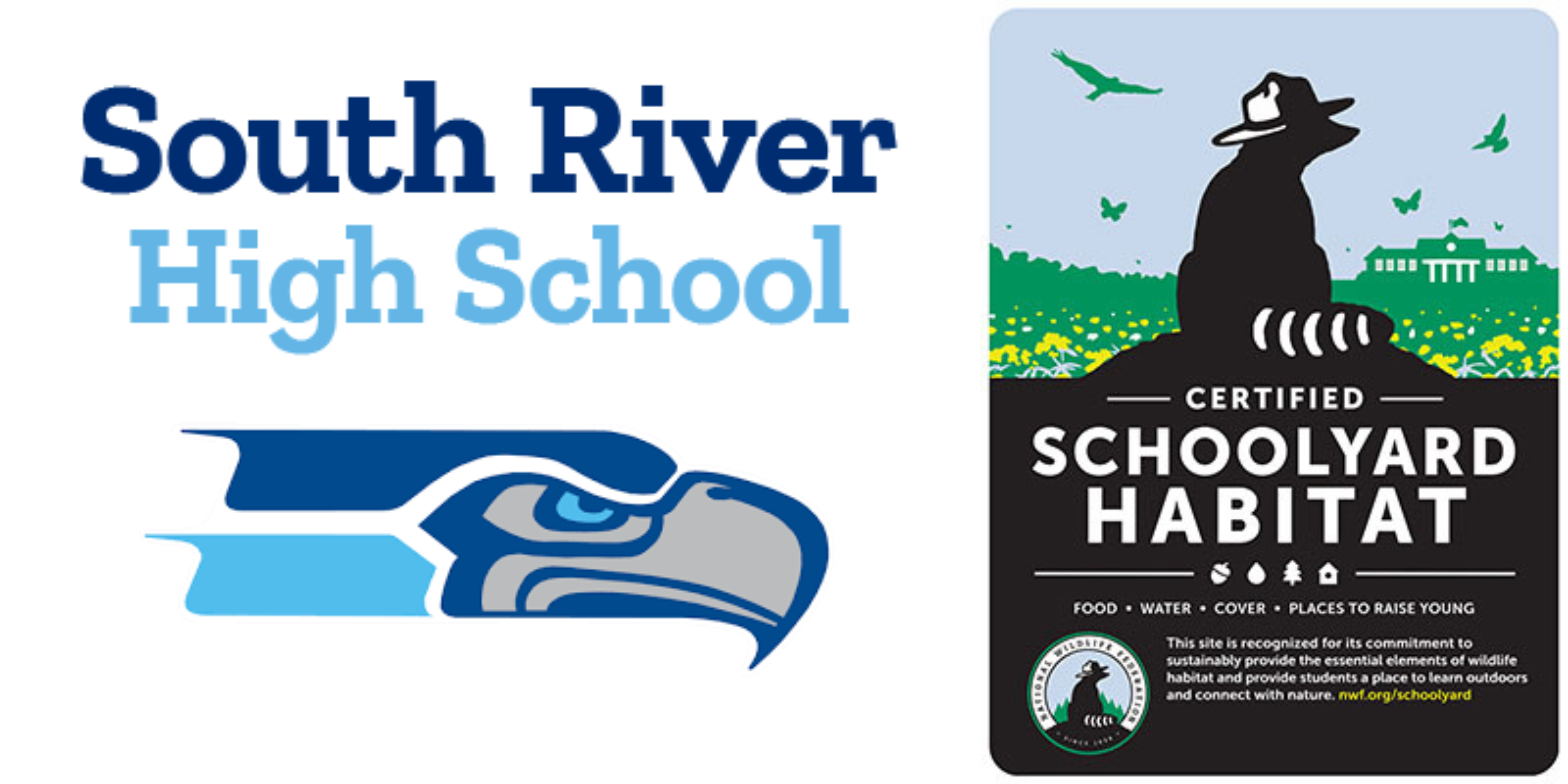The National Wildlife Federation (NWF), America’s largest wildlife conservation and education organization, is pleased to recognize that South River High School in Edgewater has successfully created a Certified Schoolyard Habitat® through its Garden for Wildlife program. South River High School has joined with over 5,000 schools nationwide that have transformed their schoolyards into thriving wildlife habitats that provide essential elements needed by all wildlife – natural food sources, clean water, cover and places to raise young. The habitat also serves as an outdoor education site where students can engage in cross-curricular learning in a hands-on way.
Certification also makes your Certified Wildlife Habitat® part of the Million Pollinator Garden Challenge, a national effort to restore critical habitat for pollinators.
“We are excited to have another school join our growing list of more than 5,000 certified Schoolyard Habitats. Kids can now personally experience nature through hands-on learning in an outdoor environment,” said Liz Soper, Director of K-12 Programs for National Wildlife Federation.
“We wanted to demonstrate our school’s commitment to sustainability and environmental protection,” said Green Technologies Pathway lead and STEM teacher Charlotte Flury.
“The garden makes me feel more attached to my community. I love seeing a splash of nature next to my school building.” said Macie Culpepper, Green Tech STEM student.
The South River High School habitat is a pollinator garden filled with plants native to Central Maryland. It features plants such as the Bleeding Heart, Green and Gold, White Wood Aster, Christmas and Wood Fern, and Woodland Phlox. The garden is 100% organic. No pesticides or fertilizers have been used. The students at South River High School in the Green Technologies STEM pathway have started, maintained and improved the garden. They, along with their teacher, selected plants that were best suited to the garden’s shade requirements and soil type. In an effort to provide a habitat for native wildlife, students constructed a birdhouse and a butterfly puddling dish.
NWF’s Garden for Wildlife program encourages responsible gardening that helps pollinators and other wildlife thrive. It encourages planting with native species like milkweed and discouraging chemical pesticide use. With nearly 200,000 locations and growing, NWF’s Certified Wildlife Habitats and Community Wildlife Habitats recognize individuals, schools, groups and whole communities committed to providing habitat for wildlife, including pollinators. Each of the nearly 200,000 certified locations provide food, water, cover and places to raise young. This makes yards, schools, businesses, places of worship, campuses, parks, farms and other community-based landscapes into wildlife sanctuaries.
For more information on gardening for wildlife and details on how an entire community can become certified, visit www.nwf.org/habitat or call 1-800-822-9919. For more National Wildlife Federation news, visit: www.nwf.org/news. (National Wildlife Federation is America’s largest conservation organization, inspiring Americans to protect wildlife for our children’s future.)
Story presented on behalf of the South River HS via National Wildlife Federation press release.
Louis Nesbitt
Office of Business & Community Development



